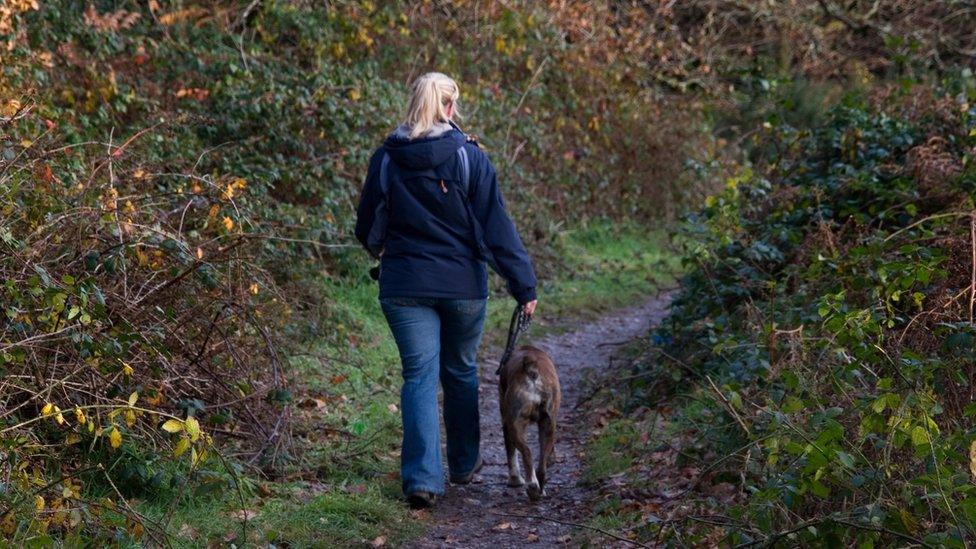Dog walkers urged to keep pets on leads to protect nests
- Published

The law says between March and July dogs on any open access land must be kept on a lead no longer than 2m (6.5ft) to protect ground-nesting birds
Dog owners are being reminded to keep their dogs on leads to avoid putting ground-nesting birds at risk.
Ground-nesting birds can be found on moorland, in fields, urban parks or the beach during the spring and summer.
Blackbirds, oyster catchers and nightjars are among the species that nest on the ground or just above it.
Harry Barton, chief executive of Devon Wildlife Trust, said "ideally dogs should be kept on short leads from March to September".
He added: "The number of birds we have got is much fewer than 10 or 20 years ago. One thing we can all do is reduce the disturbance our dogs cause.
"Dogs are fantastic companions and we love them coming to our reserves, but dogs can do a couple of things.
"They can run around and put up birds that are nesting on the ground. And also, by running around in the undergrowth, they make the whole undergrowth smell of dog and as far as a bird is concerned a dog is a predator so they will come and smell the predator and think 'this isn't safe for us, we will go elsewhere'."
Some beaches have cordoned-off areas to protect some of the rarest birds' nests, but the trust says "it is best to keep dogs on leads on all beaches and the wider countryside until chicks have fledged in September".
Devon Wildlife Trust said some of its sites are not suitable for dog walkers due to being home to rare and fragile species, including South Efford Marsh, Dawlish Inner Warren, Exe Reed Beds and Horsey Island - and it urges owners check before visiting individual reserve.

Follow BBC News South West on Twitter, external, Facebook, external and Instagram, external. Send your story ideas to spotlight@bbc.co.uk, external.